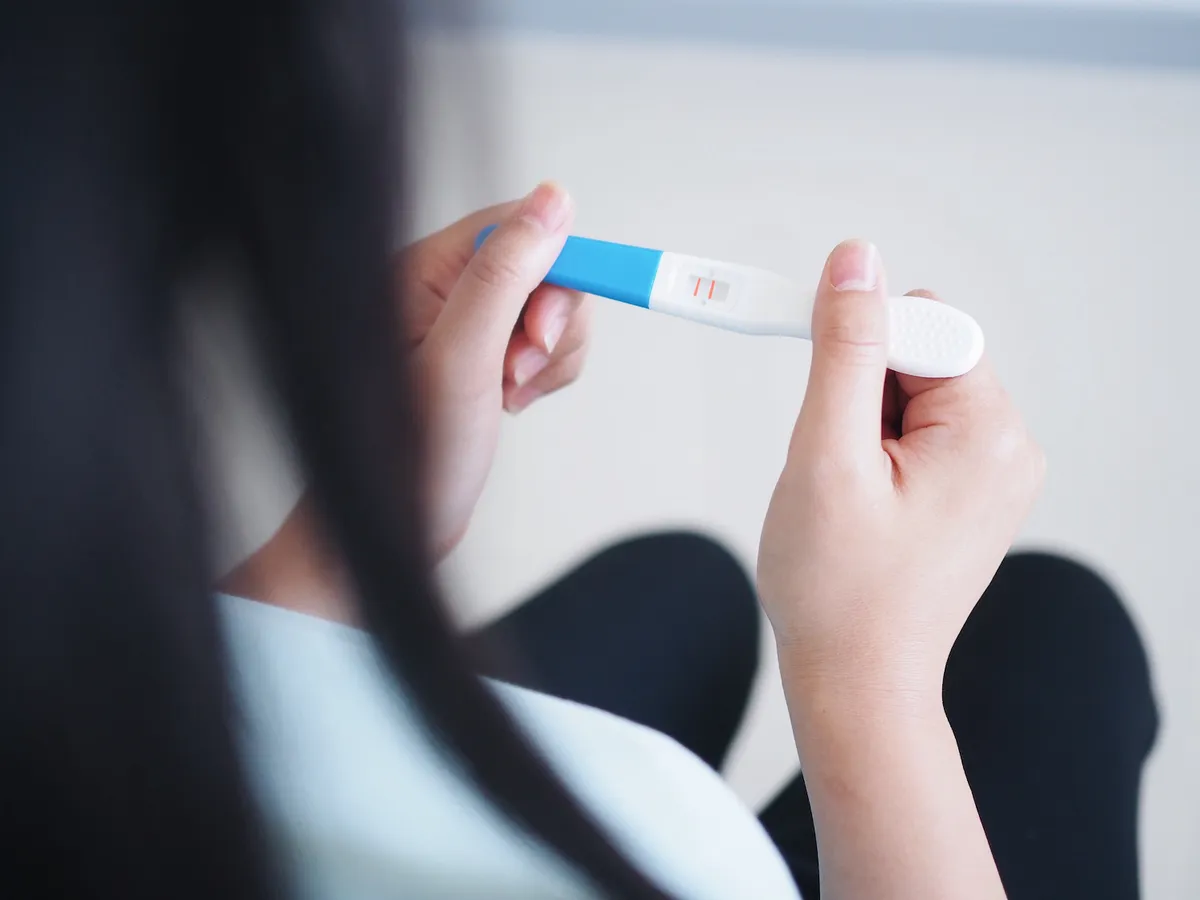For anyone reading this who is struggling to fall pregnant, please know that you’re not alone and that talking to others and hearing their stories will help, I promise. It’s my hope that sharing my own fertility story will offer some comfort, too.
And for anyone else, if you’re training for triathlon falling pregnant might actually be the last thing on your mind and you might be reading this out of a sense of vague intrigue.
It might be that you’re training for something in order to get fitter before falling pregnant. Or it might be that you’re a seasoned athlete who just happens to want a baby but doesn’t want to give up competing.
Whether or not you relate to my story, sharing it with you might just help to raise awareness of the condition I suffered from.
Marathon training
Back in 2009 I decided to run the London Marathon. After several 10ks and half marathons in my mid to late 20s, it was the ultimate goal for me.
By the time of the marathon I was 29 and at the top of my running game, so being part of the day along with achieving my time of 3:46hrs were among the proudest moments of my life.
There was no question that the training was grueling and looking back it did take over my life. However, the outcome I didn’t quite consider was the toll it took on my body. I was underweight, weighing somewhere between 45-47kg at 5ft3in.
At the time I didn’t worry about it, and when my family and friends made comments I just brushed them aside. I was on the pill so my periods, to all extents and purposes, were regular and normal. I felt absolutely fine and was the fittest I’d ever been.
Fast forward one year and my now husband and I were talking about marriage and kids so I came off the pill in preparation, slowed down the exercise and gained back the weight. One year after coming off the pill I finally had my first period.
What followed were erratic cycles with little to no sign of ovulation. Once the wedding date was set, that became my sole focus. In the run-up, the exercise started to ramp up again.
After the wedding, it took seven months and three cycles to conceive my son (born December 2013). At the time, the wait felt interminable, and the constant erratic nature of my cycles regularly played on my mind.
However, that process was nothing compared to trying for our second child at 36.
When you regularly exercise to intensity and/or you’re underweight, your brain goes into a fight or flight mode
‘Do you need a sat nav?’
A year of trying, now on Clomiphene to regulate my cycles, and months before I could get a transvaginal scan and a proper diagnosis. The scan, when it happened, was a disaster.
Due to my tilted cervix, they couldn’t find the uterus and womb and after an extended period of uncomfortable prodding and shoving, me about ready to thrust a sat nav at them, they gave up.
I’d have to wait another six months before another scan. I went home in tears of frustration and violation, prompting my husband and I to speak to both sets of parents about financial help to go private to get the proper diagnosis and treatment earlier (a situation for which we will both be forever grateful).
Cue my first meeting with Dr Amanda. The most positive, upbeat, kind and approachable fertility doctor I had come across, and by that point I’d come across a few.
The scan was done and the diagnosis made – hypogonadotropic hypogonadism, meaning that my ovaries weren’t being stimulated sufficiently to produce large enough follicles to grow an egg ready to drop and fertilise and, therefore, give me a regular cycle.
After six months on Clomiphene via the NHS, there were no signs that my follicles were growing on their own, so Dr Amanda prescribed gonadotropin injections. Three rounds/cycles later, at nearly 38, I fell pregnant with my daughter.
Although I can never be certain when I developed hypogonadotropic hypogonadism, I’d hazard a guess it was during my marathon training.
When you regularly exercise to intensity and/or you’re underweight, your brain goes into a fight or flight mode. This then sends signals to your body that it’s not ready to produce a baby.
If I was to give advice to anyone who might relate to this, making yourself feel guilty about the amount of exercise you did or currently do is not going to change the past or the course you’re on
Finally making sense
Once I knew this, it all made so much sense. Even when I had dialled down the exercise and had a healthy BMI, stress levels through work, the constant failed attempts or even an illness would bring about another missed cycle.
Before the injections, my body was in a perpetual state of rejecting the possibility of pregnancy.
The happy end to this story, other than my beautiful daughter who is now 4, is that the condition has subsided. I’m lucky to now have regular ovulation and periods.
If I was to give advice to anyone who might relate to this, making yourself feel guilty about the amount of exercise you did or currently do is not going to change the past or the course you’re on.
Had I known back then that it would bring about fertility problems and that the pill was just masking a hidden problem, of course I would’ve changed my exercise habits.
But would I go back and change my experience of the marathon? No. It’s part of the patchwork quilt that makes up my life so far and I’m still proud of it.
Yes, my path to having children has been different and harder emotionally than anything I’ve ever gone through, but my 29-year-old self was never to know that so I can’t blame her for the inherent drive she had at the time.
However, I know I would be at fault for not bringing it out in the open for others who might be thinking of having children, whether in the distant or not so distant future. I just hope my own story provides a ray of light to others who might find themselves lost in the infertility darkness.
- Mental health: Are you exercising too much for your mind?
- Why good energy balance is vital for female triathletes
Fetility and exercise: the facts
- Regular fitness activity can not only help to lose excess weight that may impact fertility, but also help to balance hormones, improve insulin, and reduce stress.
- Walking, cycling, dancing, swimming and yoga are all recommended forms of fitness to boost fertility.
- Research recommends limiting vigorous exercise to less than four hours per week. You don’t need to limit moderate exercise.
- Studies have found that women who exercise regularly are more likely to report pregnancy after receiving IVF treatment.
Useful links for further advice and information on the relationship between fertility and exercise:
verywellfamily.com/optimal-fertility-and-exercise-1960255
modernfertility.com/blog/exercise-fertility-pregnancy/
carolinasfertilityinstitute.com/the-relationship-between-exercise-and-fertility/
laivfclinic.com/blog/the-best-exercises-for-improving-fertility/
shape.com/lifestyle/mind-and-body/boost-fertility-with-exercise

- Should I keep training when pregnant?
- How to cycle safely while pregnant
- Chelsea Sodaro: I won’t stop talking about my postpartum journey
- Tummy gap: what is it and how can you fix it?
Image credits: Getty Images
